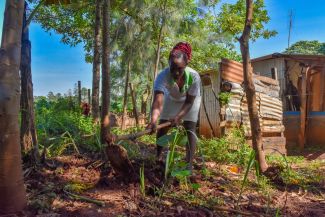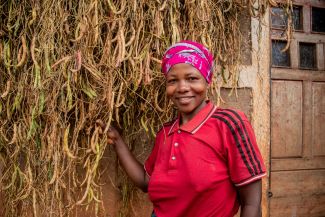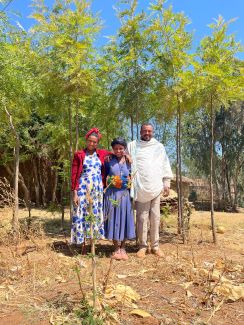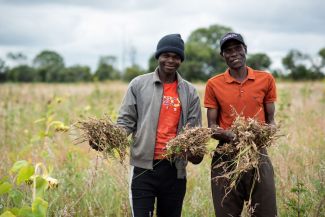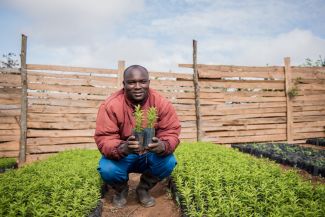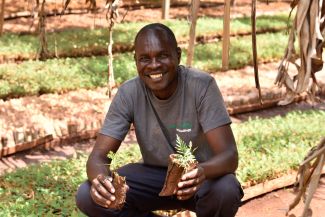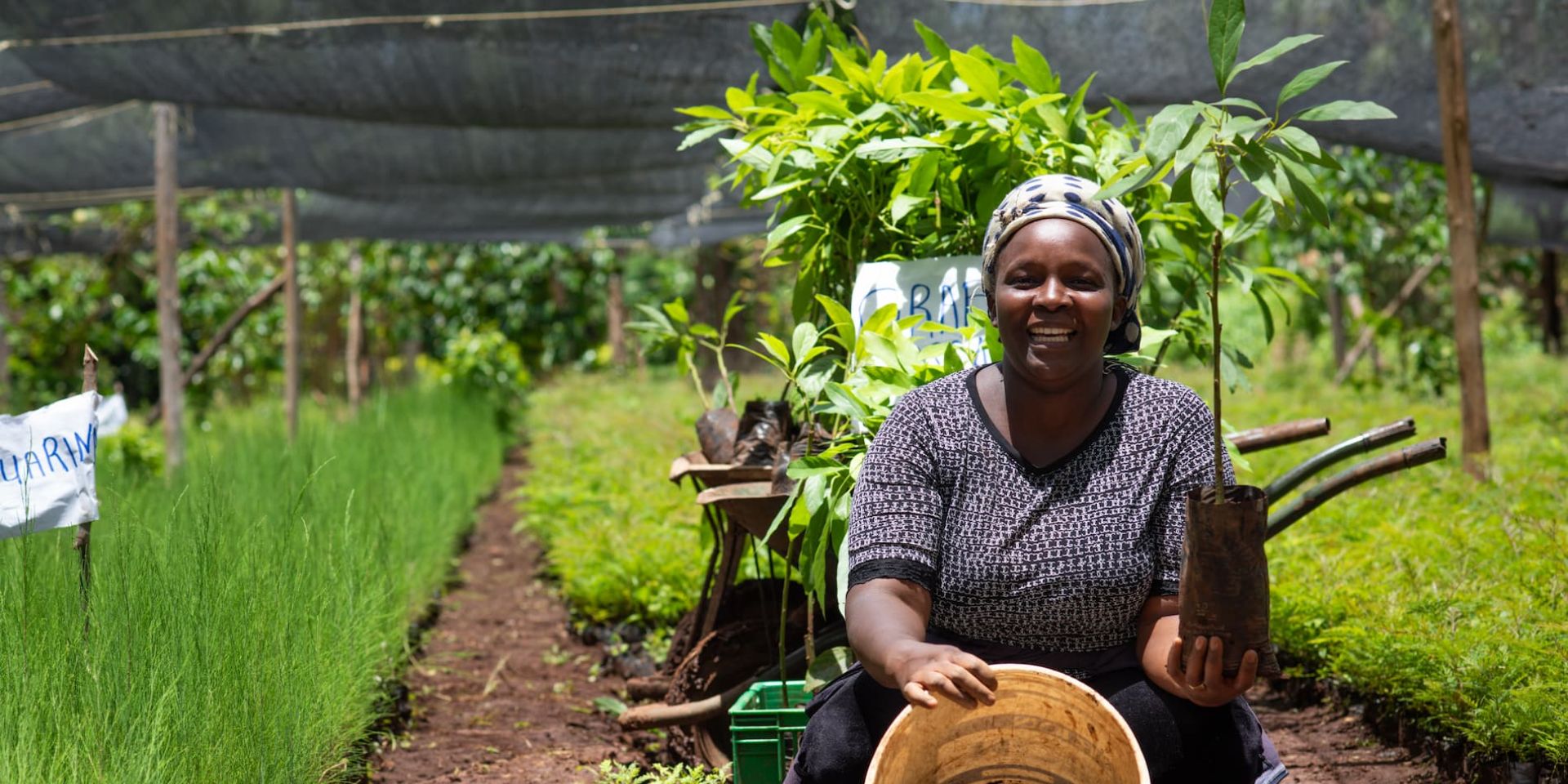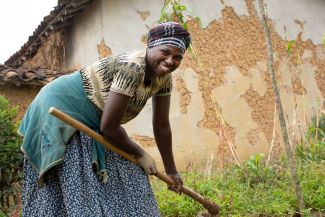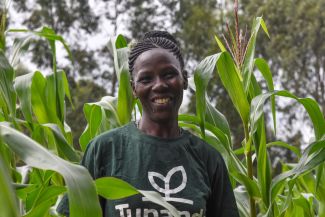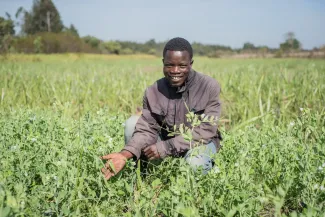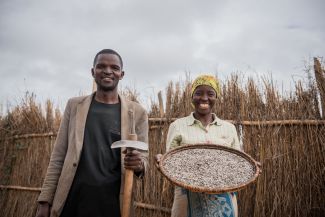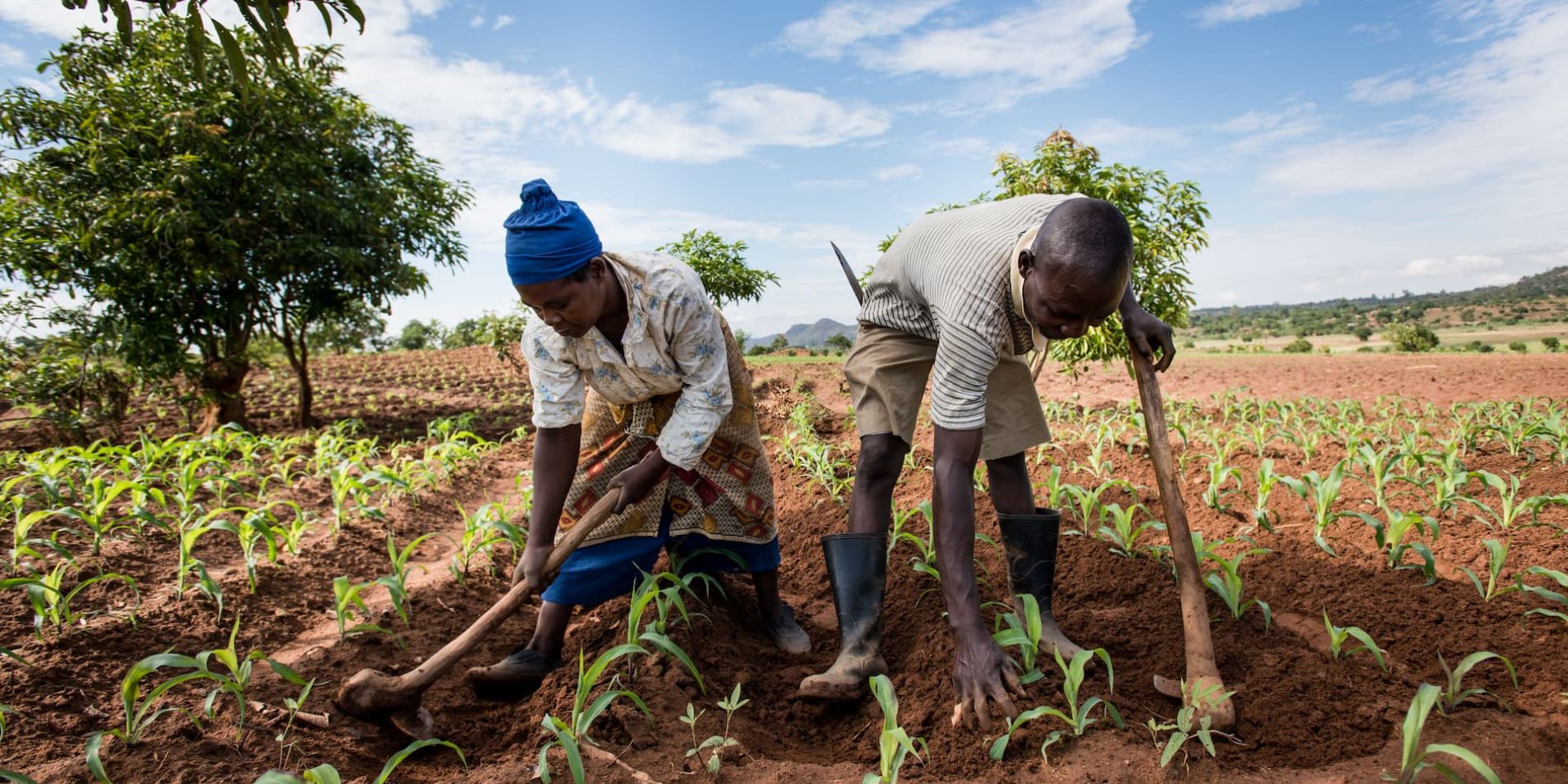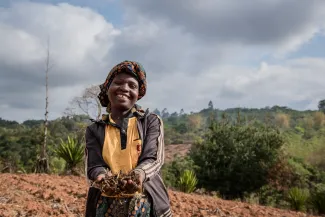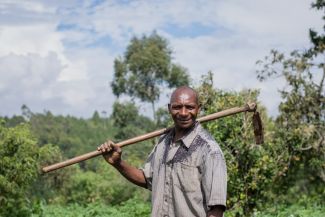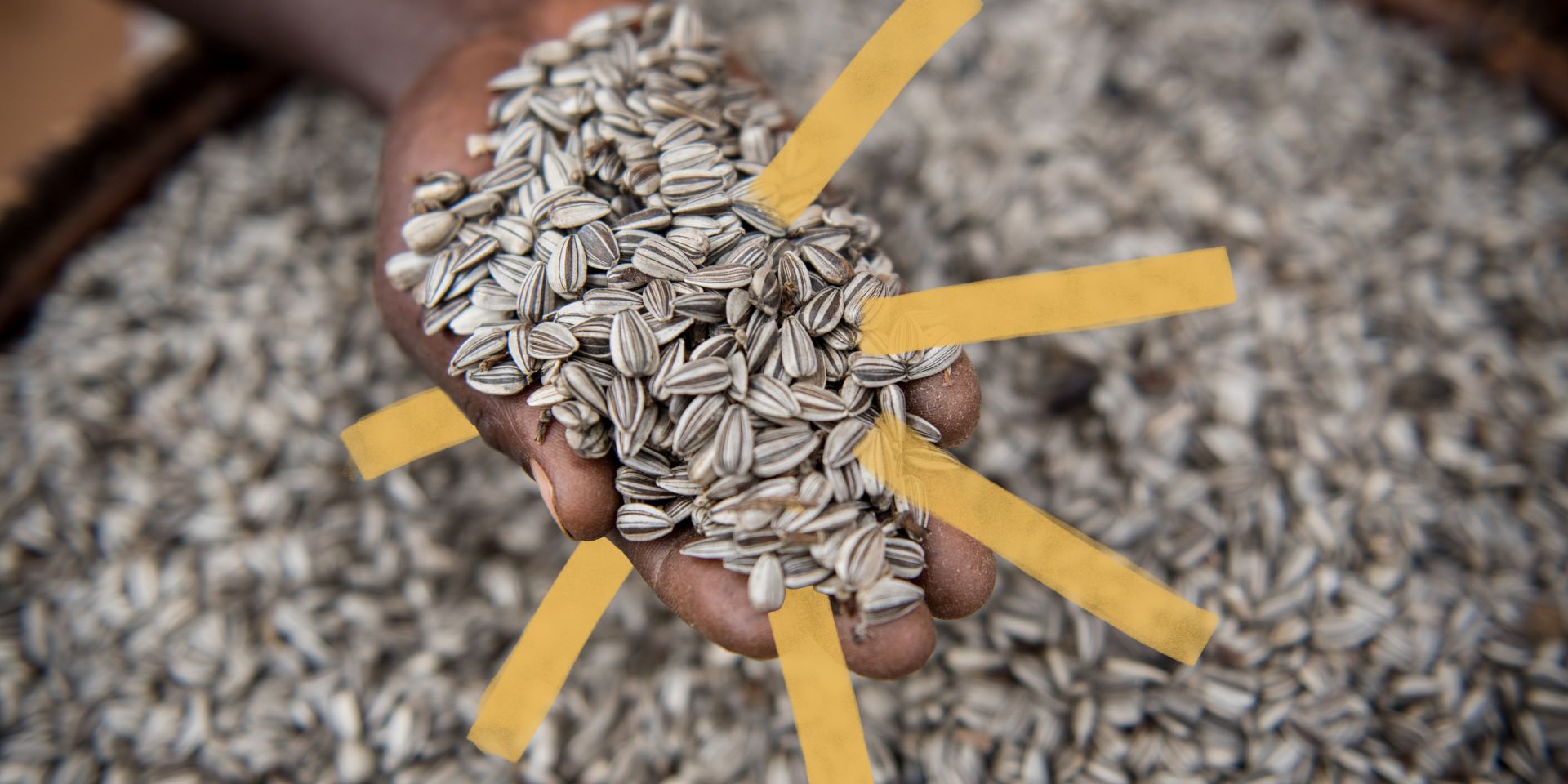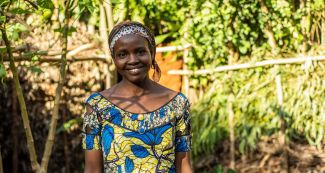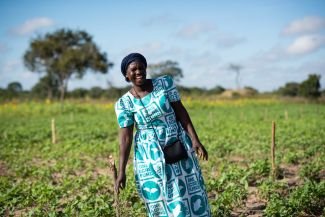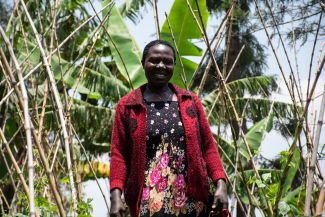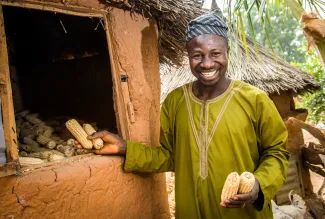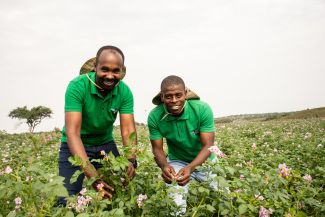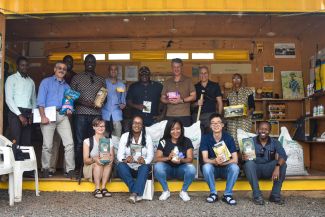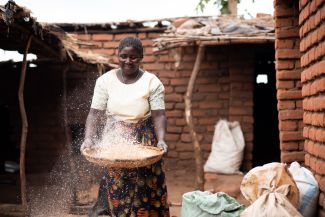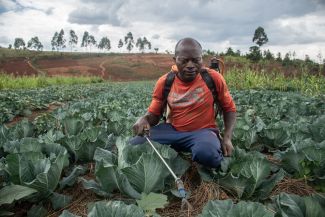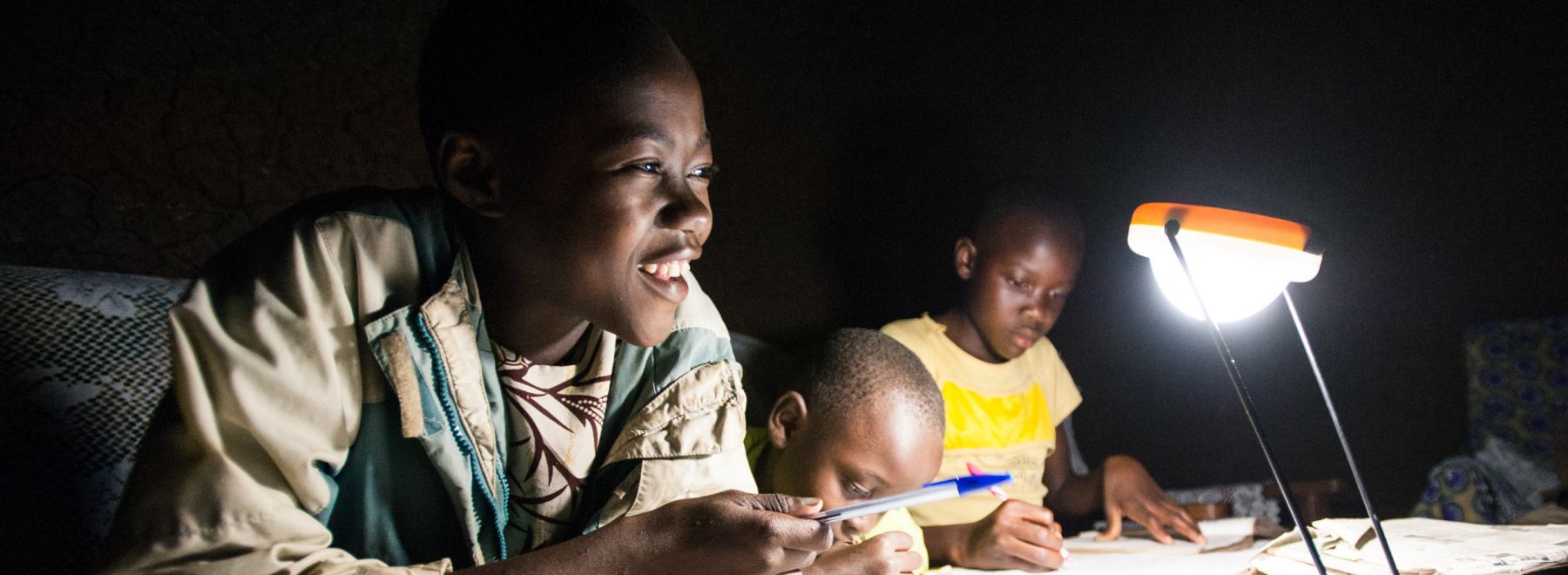
Learn more about the people we serve, the challenges they face and see our work in action.
Stories
How profitable farming is nurturing a generation of women entrepreneurs
Eugine’s Asubila story is a testament to how smallholder agriculture is empowering women across Kenya – and sub-Saharan Africa – to become entrepreneurs by creating the means for them to set up new businesses.
Our impact in Burundi doubled last year - here's how
2023 marked a second year of 50% growth in Burundi as we expanded to meet high demand for our program.
1 farmer, 61,000 tree seedlings
Meet Yeshiwas Ayehu, an innovative farmer from Ethiopia whose commitment to growing and distributing trees in his community is changing their lives and the landscape around them.
Friday Ndashe: Planting trees and growing futures in Zambia
For Friday Ndashe, who manages a tree nursery close to Kabwe in Zambia, running a tree nursery is a “joyful endeavor” with many benefits - for him and his local community.
Why tree planting on farms is a win for farmers and nature
Discover how agroforestry - the practice of planting trees among crops - offers smallholder farmers like Baraka, Dunstan and Claudine a variety of benefits.
How tree nurseries are changing fortunes in Kenya and Burundi
In Kenya and Burundi, farmers like Wycliffe Nzaga, Eunice Nguu, and Sylvie Nahimana have witnessed first-hand the detrimental effects of climate change on farming.
More Than A Tree
We do tree planting differently. Our initiative to plant 1 billion trees is led by smallholder farmers and every seedling planted is an opportunity for them and their families to prosper.
The power of women smallholder farmers
Investing in women smallholder farmers like Jeanne D'Arc Mbanira is critical to significantly increasing agricultural productivity, food security, and household prosperity.
Why investing in women farmers catalyzes community development
Women smallholder farmers like Hilder Ongeri typically invest more of what they earn back into their families and communities than their male counterparts. This has knock-on effects for the generations that follow.
Farming futures: How youth are cultivating prosperity
In Africa, young people like Taifa represent a significant demographic, with 70% of Sub-Saharan Africa under the age of 30. As this new wave of farmers like Taifa steps up to inherit the mantle from their predecessors, there is a compelling need to encourage even more young people to embrace farming.
How crop diversification drives climate resilience and boosts farmer income
Crop diversification isn't just a farming strategy; it's a catalyst for change. It propels farmers towards economic self-sufficiency, safeguards the environment, and fosters thriving communities.
Organizational update: Appointment of new CFO
Our CEO, Andrew Youn, shares an update on the recruitment of our new Chief Financial Officer.
One Acre Fund Re: Safeguarding smallholder farmers in the face of climate impacts
We are excited to announce the launch of One Acre Fund Re, a reinsurance facility that will safeguard smallholder farmers in the face of extreme weather events’ devastating impacts on crop yields.
How soil testing is helping smallholders in Tanzania improve soil health
Smallholder farmers are intimately connected with their soil, relying on it for strong harvests to feed their families and communities, and to earn an income. For this year’s World Soil Day, we’re highlighting how smallholder farmers in Tanzania are investing in their futures by taking part in our new soil testing and training offering.
Why investing in variety is crucial for farming success
Meet Angelus Mwapinga, a 50-year-old farmer from Tanzania. Determined to send his seven children to school, he leveraged credit from One Acre Fund to buy high quality farming inputs leading to a 20% increase in his harvest. His success means that he has been able to expand his farm, now growing potatoes and fruit tree seedlings. Diversification like this helps protect him against climate shocks.
One Acre Fund's Global Croptake: The data in depth
Smallholder farmers are witnessing the devastating impacts of the climate crisis on their crops, harvests, diets, and families. This is not a hypothetical future risk; it is a reality they are facing today.
Claudine Ayinkamiye: Farmer, tree entrepreneur, climate adapter
In just the first season farming with One Acre Fund, Claudine Ayinkamiye, a 30-year-old farmer from Rwanda, managed to produce 900 kilos of potatoes and maize. Thanks to this surplus, she was able to invest in different crops and trees, making her better equipped to withstand erratic weather due to climate change.
The transformative power of trees in Zambia
Trina Mwiinga grows trees on her farm in Zambia with One Acre Fund. In addition to the benefits trees provide - boosting her crop harvest, by protecting them from climate breakdown and providing shade for her animals from extreme heat - she is paid to look after them by One Acre Fund.
A field officer’s mission: Planting the seeds of climate resilience within her community
Fifty-two-year-old One Acre Fund field officer Alphonsine Nyiransabimana dreams of a thriving agricultural industry in Rwanda, where farmers can earn a decent living. She is working to fulfill this mission by helping farmers in her local community access credit and quality seeds so that they can increase their harvests and adapt to extreme weather caused by the climate crisis.
One Acre Fund Nigeria: From Pilot to Full Country Program
Starting as a pilot serving 150 farmers in 2018 in Niger State, our program in Nigeria has been hugely successful – in 2022, we served over 24,000 farmers. We are rapidly scaling and expanding our work, which has the potential to transform the livelihoods of hundreds of thousands of Nigeria’s smallholder farmers over the next decade.
Why we’re introducing disease-resistant potato seeds in Rwanda
In 2022, One Acre Fund Rwanda launched a program to distribute high-yielding, disease-resistant potato seed to the country’s smallholders to improve harvests and incomes.
Organisational update: Transitions in One Acre Fund’s CEO role and addition of a new leadership role
We share an update on changes at One Acre Fund’s senior-most leadership level.
How innovation is shaping Malawi's agricultural landscape
Smallholder farmers in Malawi play a vital role in the country's economy, but they face production challenges – due to limited resources and access and changing weather patterns. Learn more about what we're doing to support them.
Small Crops with Big Impact: Tapping into vegetable farming for farmer prosperity and nutrition
Our work with Burundi's vegetable farmers highlights how vegetable farming is emerging as a promising sustainable agricultural practice.
